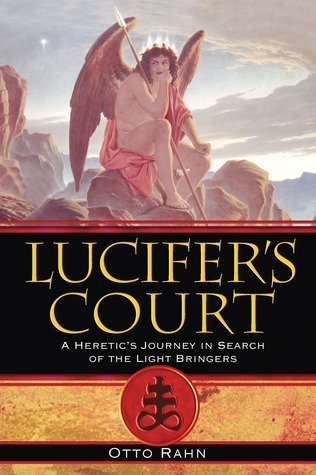
Crusade Against the Grail: The Struggle between the Cathars, the Templars, and the Church of Rome
Book Description
A secret war rages beneath the surface of medieval Europe, where the sacred Grail holds the key to salvation, power, and an ancient belief system. As Cathars stand defiantly against the oppressive might of the Church of Rome, the Knights Templar are torn between loyalty and truth, battling for a vision that could reshape the world. Betrayals loom, alliances fracture, and the very fabric of faith is tested in a relentless fight for survival. With whispers of hidden truths and dark conspiracies echoing through shadowy cathedrals, who will emerge victorious in this clash of ideologies? What price will be paid for enlightenment?
Quick Book Summary
"Crusade Against the Grail" by Otto Rahn examines the tangled relationship between faith, heresy, chivalry, and power in medieval Europe through the lens of the Cathar heresy and its suppression by the Catholic Church. Rahn weaves history, legend, and esoteric thought to uncover the deeper significance of the Holy Grail, linking it to the spiritual traditions of the Cathars and the mysterious role of the Knights Templar. Against a backdrop of religious persecution, he explores the ideological and physical battles waged between the Cathars—guardians of a secret doctrine—the Templars, and the ruthless authority of the Church of Rome. Ultimately, Rahn portrays the struggle as not just a historical conflict but a symbolic contest over the nature of truth, wisdom, and human salvation.
Summary of Key Ideas
Table of Contents
The Cathars and the Dualist Heresy
Otto Rahn delves into the meteoric rise of the Cathar movement in the Languedoc region of France, where beliefs in dualism and spiritual purity sharply contrasted with the doctrines of the Catholic Church. The Cathars advocated a return to an ascetic, spiritually-centered Christianity, rejecting Church hierarchy and materialism. Their teachings, seen as heretical by Rome, positioned the Cathars as both religious outsiders and threat to ecclesiastical power, drawing the ire of the papacy and setting the stage for conflict.
The Church of Rome's Suppression and the Albigensian Crusade
The Catholic Church initiated the brutal Albigensian Crusade in the early 13th century, targeting the Cathars and their sympathizers for annihilation. The crusade was not only a military campaign but also an ideological purge, justified under the auspices of rooting out heresy. Rahn illuminates the violence and tragedy of these campaigns, including famous sieges like Montségur, and the harsh Inquisition, which ultimately led to the near-eradication of Catharism. The Church’s relentless persecution reveals the lengths to which institutional power would go to maintain doctrinal unity and authority.
The Enigmatic Role of the Knights Templar
Amidst this conflict, the Knights Templar emerge as enigmatic figures—warrior-monks caught between service to the Church and a predilection for secret knowledge. Rahn investigates the Templars’ possible sympathy for Cathar beliefs and their rumored guardianship of the Grail. The Templars’ ambiguous reputation, eventual persecution, and mysterious downfall mirror the wider suppression of heterodox spiritual currents in medieval Europe, and raise questions about their true role in the Grail legend and the preservation of alternative spiritual traditions.
The Grail as a Symbol of Esoteric Wisdom
Central to Rahn’s narrative is the Grail—interpreted not merely as a holy relic, but as a potent symbol of hidden wisdom, lost traditions, and spiritual enlightenment. Rahn draws connections between Grail legends, Cathar teachings, and pre-Christian symbolism, suggesting that the Grail represents a body of secret knowledge fiercely protected by heretical groups. The search for the Grail parallels humanity’s quest for truth and transcendent meaning in a world dominated by dogma and external authority.
Interplay of Power, Betrayal, and Faith
The struggle among Cathars, Templars, and the Church is ultimately framed as a profound battle of ideas, faith, and existential yearning. Rahn suggests that behind historical betrayals and shifting alliances lay enduring questions about the true nature of salvation, the corrupting influence of power, and the resilience of spiritual ideals. "Crusade Against the Grail" thus becomes both a meticulously researched history and an evocative meditation on the perennial search for enlightenment amid repression and secrecy.
Download This Summary
Get a free PDF of this summary instantly — no email required.





